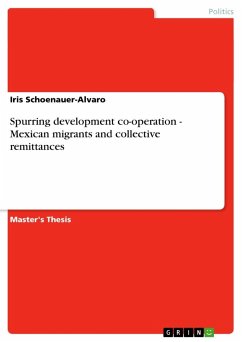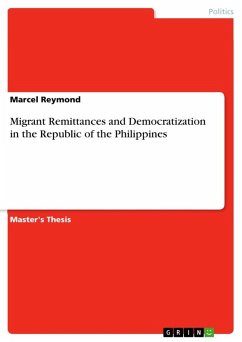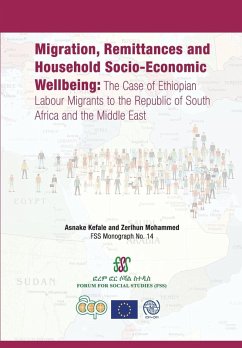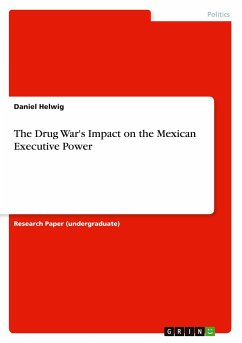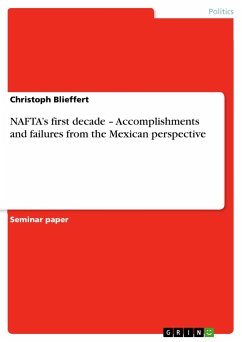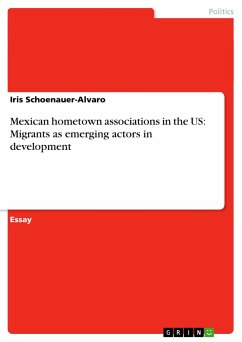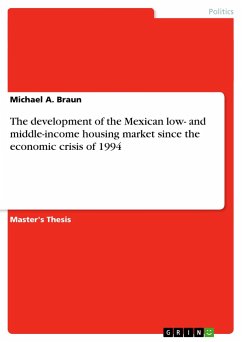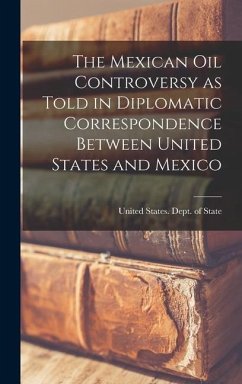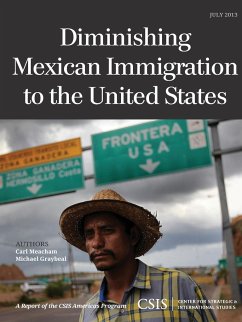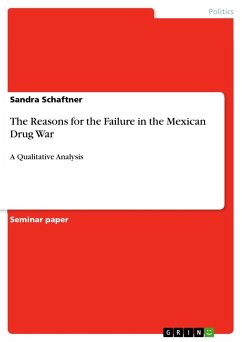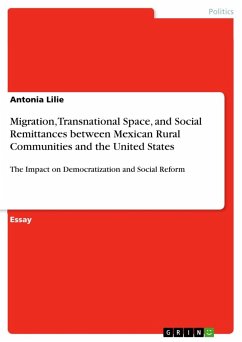
Migration, Transnational Space, and Social Remittances between Mexican Rural Communities and the United States
The Impact on Democratization and Social Reform

PAYBACK Punkte
0 °P sammeln!
Essay from the year 2012 in the subject Politics - Region: Middle and South America, grade: 1,3, University of Toronto, language: English, abstract: In 2006, more than 30% of all immigrants residing in the United States were Mexicans, accounting for one tenth of the entire Mexican population (Migrationinformation). This makes Mexico the most important and most consistent sending country for immigrants to the U.S. The co-existence of two very different worlds in the geographical space North America, divided by one of the most secure borders in the world, leads not only to cultural influences, b...
Essay from the year 2012 in the subject Politics - Region: Middle and South America, grade: 1,3, University of Toronto, language: English, abstract: In 2006, more than 30% of all immigrants residing in the United States were Mexicans, accounting for one tenth of the entire Mexican population (Migrationinformation). This makes Mexico the most important and most consistent sending country for immigrants to the U.S. The co-existence of two very different worlds in the geographical space North America, divided by one of the most secure borders in the world, leads not only to cultural influences, but also to the adaptation of socioeconomic and political ideas. Especially the fact that Mexico and the United States have very different political and socioeconomic conditions emphasizes the oppositional relationship between the two countries. In the face of such a strong and powerful neighbour, migration is always an option, a last resort, especially for Mexicans from rural communities that struggle with poor working conditions and low wages. Interestingly, this creates a certain type of migration known as transmigration. This transmigration occurs only due to socioeconomic reasons, especially labour conditions, and allows migrants to frequently travel back and forth between their home- and their host country. Since many of these transmigrants are young men who leave their families behind to earn money that they can then send back home in the form of financial remittances, different patterns of communication between these migrants and their relatives back home can be analyzed.This paper will first outline the situation of Mexican migrants to the United States, give a brief overview of their backgrounds and the demographic situation, and then turn to the push-factors for migration. It will especially focus on labour rights and working conditions in Mexico and the prospects for migrants arriving in the United States. After thatthe concept of 'Social Remittances' as aform of cultural diffusion will be introduced andthe quality of ideas and experiences that are transmitted through a transnational space from Mexicans residing in the U.S. to their families and community members back home will be explained. The paper will then turn to an analysis of these social remittances and explain how they can influence political participation and activism of individual community members. This analysis serves to support the thesis that migration has a direct influence on the process of democratization from below, especially when it comes to labour rights and other socioeconomic issues.




